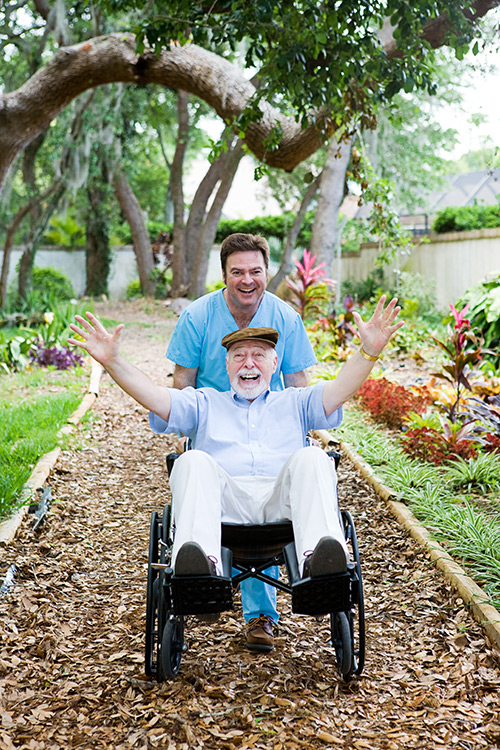4 Easy Steps to Qualify for Medi-Cal Long-Term Care
Long-Term Care Medi-Cal pays for care received in a hospital or nursing facility which lasts or is expected to last at least one full calendar month after the month of admission. If you reside in a nursing home (also known as a long-term care facility) or need nursing home care, Medi-Cal could pay for all or part of the care and services you receive.
- Determine If You Are Eligible
The Medi-Cal Planning Attorneys at Elder Law Services of California can help you determine your eligibility. Read more about Medi-Cal Eligibility Requirements below or call 1-800 403-6078 to schedule a free consultation with a Medi-Cal Planning Attorney today. - Gather Necessary Documents
To apply for Medi-Cal, you will need the following documents:
- Social Security numbers: Every applicant who has a Social Security number needs to provide it to make the application process faster. Social Security numbers help your county social services office verify your information.
- Income and employment information: Adults who receive income need to provide information about their unemployment benefits or employment. The required documents can vary and could include proof of unemployment benefits or pay stubs.
- Federal tax information: The head of the household and their dependents need to provide their federal tax information. You could still qualify for Medi-Cal even if you don’t file taxes.
- Immigration documents: Anyone on your application who doesn’t have American citizenship can submit immigration documents to determine their eligibility for other services. Undocumented adults cannot get Medi-Cal, but undocumented children can qualify.
- Apply for Medi-Cal Long-term Care Benefits.
- Enroll in a Plan within 30 days of being approved.
Covered Services
- Nursing Home and Convalescent Care
- Comprehensive Preventive Care
- Primary and Specialty Care
- Office Visits
- Vision and Dental Care
- Mental Health Services
- Hospitalization
- Prescription Medicines

Basic Eligibility Requirements for Medi-Cal Long-Term Care
SSI recipients are automatically eligible. Almost any person who requires ongoing skilled nursing care is mentally impaired with Alzheimer’s/dementia or is unable to care for him or herself can qualify for Medi-Cal Long-term Care. If skilled nursing care is not required, then Medi-Cal will tie eligibility to the number of ADLs (activities of daily living) that an individual needs help with. This can include dressing, bathing, eating, cooking, etc.
Medi-Cal Eligibility Requirements State that:
- You must reside in California.
- You must provide verification of income, property/resources, and other necessary information if requested.
- Your countable property/resources must not exceed:
- $2,000 for an individual, or
- For married persons or Registered Domestic Partners,
special rules may apply that allow the spouse/partner at
home to keep additional property that belongs to the person
in Long-Term Care.
Learn more about Property limitations for Medi-Cal Eligibility

- You must be receiving or expected to receive care for at least 30 days after the month that you are admitted to a:
- Hospital
- Skilled Nursing Facility
- Intermediate Care Facility (ICF), or
- Convalescent Home
Medi-Cal Asset Limitations
The financial resources of people applying for Medi-Cal are a major factor in determining eligibility. Resources are the same as “assets” and “countable assets.” There are a considerable number of exceptions made when determining what qualifies as “countable”. Consult with a Medi-Cal Planning Attorney to determine whether or not your primary home, vehicle, jewelry, clothing, furniture, Whole Life Insurance policies, IRAs or Pensions, can all be considered “non-countable” or exempt assets.
If a senior’s financial assets are more than the Medi-Cal Asset Limitations, but their income does not cover the cost of their long-term care, then they are considered to be in the “Med-Cal Gap.” In this situation, some seniors will “spend down” their assets on their long-term care costs (pay for their care costs out of pocket) until they become eligible. It’s important that one does not give away assets or sell them under fair market value to meet the asset limit for Medi-Cal. The State will consider any asset transfers going back as far as 5 years before the Medi-Cal application date. This is called the Look-Back Period, and if violated, can lead to a period of ineligibility for Medi-Cal benefits. The transfer rules are activated when a person enters a nursing home and applies for Medi-Cal. The Medi-Cal application will ask if the applicant transferred any assets prior to the date of the application. Speak to a Medi-Cal Planning Attorney to learn how you can protect your family’s assets and qualify for Medi-Cal without having to spend down your assets or give everything away.
Married couples can have considerably higher asset limits, but only if one spouse is not applying for Medi-Cal. The non-applicant is referred to as the “community spouse”. In 2022, the community spouse is allowed to have up to $137,400 in countable assets. This is in addition to the assets the applicant spouse is allowed to keep. Persons whose assets are greater than Medi-Cal’s countable limits should not automatically assume that they are ineligible. An experienced Medi-Cal Planning Attorney can help determine qualification, as well as provide guidance on asset protection.
Medi-Cal Income Requirements
Both one’s income and one’s assets are taken into consideration and have limitations to qualify for Medi-Cal. It is important to know that even if one’s income or assets exceeds the limits, with the help of a Medi-Cal Planning Attorney, many individuals can still qualify for California Medi-Cal benefits.
Single Person: There is no income limit, but most of your income will be used to pay for expenses at the nursing facility where you reside.
Married Persons or Registered Domestic Partners: Special rules may apply that allow a spouse or partner at home to keep additional income that belongs to the person in Long-Term Care
Medi-Cal Estate Recovery
Estate Recovery rules apply to individuals who receive Long-Term Care Medi-Cal benefits. Medi-Cal applicants, beneficiaries, and their spouses should always be aware of the Medi-Cal Recovery rules and use Medi-Cal Planning if they want to avoid recovery on their home or other assets. Speak to a qualified Medi-Cal Planning Attorney for more information on the Medi-Cal Recovery program or Medi-Cal Planning.
Learn more about How to avoid the Medi-Cal Estate Recovery Program.
Citizenship/Immigration Requirements
If you have Satisfactory Immigration Status, you may be eligible for Full-Scope Benefits. Under Medi-Cal, a member may have full-scope or partial-scope coverage. Full-scope coverage involves all Medi-Cal coverage, while partial-scope coverage includes some services.
- If you do not have Satisfactory Immigration Status, you may be eligible for Restricted-Scope Benefits.
- Immigrants who have been legal residents for 5 years or longer or meet specific noncitizen requirements qualify for all of the same programs that citizens can qualify for.
- Some non-citizens who have legal immigration status in the United States do not qualify for full Medi-Cal coverage. However, they may qualify for private coverage subsidized by the government.
- Undocumented children and young adults who are 25 years old or younger can qualify for Medi-Cal coverage if they meet all other program requirements.
- Undocumented adults who are 26 years old and older do not qualify for full Medi-Cal coverage, though they may qualify for Medi-Cal coverage for emergencies or during pregnancy.
Renewal Requirements
Your Medi-Cal eligibility must be reviewed at least once a year.
Call Elder Law Services today for a free consultation. We make it easy to know what choices you have.
Call For Your
Free Consultation*
Call Elder Law Services of California today at
(800) 403-6078
to schedule a FREE Consultation
with one of our expert lawyers.
* Please Note: Limit of 1 free consultation per individual/family.

